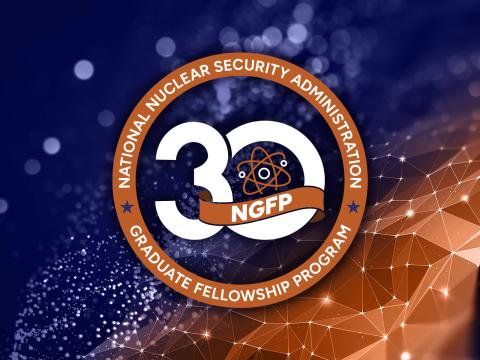About NGFP
Building future leaders to strengthen our nation through nuclear security
History

Launched in 1995, NGFP has provided more than 800 fellows with a shared experience of serving America and strengthening the Nation through nuclear security. Although these fellows represent wide-ranging degrees and technical backgrounds, one of the key bonds they share is a commitment to public service and national security. PNNL has administered NGFP, on behalf of NNSA. since 2002.
The NGFP Class of 2025–2026 that started in June of 2025 will be the 30th cohort of the program.
Load the map below in a separate window for a larger view.
Mission
For 30 years, NGFP has been identifying and developing the next generation of exceptional national security leaders to achieve the NNSA mission: Strengthening our nation through nuclear security.
NGFP has become a recognized resource for bringing top talent to our nation’s critical national security missions and providing unique opportunities for fellows to (1) work alongside leading experts at NNSA program and site offices; (2) participate in exclusive professional development, networking, and training opportunities; and (3) engage with national security stakeholders and support leading events and activities around the world.
Fellows work alongside NNSA leaders, researchers, and other staff to deliver meaningful programmatic impacts, including:
- Securing nuclear materials, nuclear weapons, and radiological materials at potentially vulnerable sites worldwide.
- Managing and stewarding the U.S. nuclear deterrent, including Dismantlement and Life-Extension Programs.
- Countering nuclear terrorism and trafficking.
- Strengthening international nonproliferation and export control regimes.
- Developing nuclear safety policy and guidance for environmental cleanup and nuclear material maintenance.
- Ensuring capabilities are in place to respond to any NNSA or Department of Energy (DOE) facility emergency and responding to nuclear or radiological incidents internationally.
- Managing NNSA infrastructure, facilities, and operations.
NGFP class size has grown from three fellows in 1995 to approximately 70 fellows in recent years. Our fellows' impact has expanded, as well. Their expertise is distributed to include DOE and partnering agencies like the Department of Commerce, Department of State, and the Defense Threat Reduction Agency. Following their year of service, our fellows are highly sought after by employers, with many going on to make important contributions to NNSA and other leading national security organizations, including national laboratories.
NGFP can be a gateway to a career in national security, as a majority of every class consistently secures positions within the greater national security community. Apply today to join us in protecting our nation and the world!
Annual Reports
Featured Highlights
Committed to Thought Leadership
National security is a complex mission with a need for impactful thought leadership. Through programs like NGFP, PNNL and NNSA are committed to building an engaged and highly skilled workforce in the fields of science, technology, engineering, mathematics, policy, and project management. To attract qualified applicants to this critical mission space, NGFP partners to expand university relationships spanning the technical and policy realm to recruit a highly qualified student body.
About NNSA
Established by Congress in 2000, NNSA is a semi-autonomous agency within DOE responsible for enhancing national security through the military application of nuclear science. NNSA maintains and enhances the safety, security, and effectiveness of the U.S. nuclear weapons stockpile without nuclear explosive testing and works to reduce the global danger from weapons of mass destruction. In addition, NNSA provides the U.S. Navy with safe and effective nuclear propulsion, and responds to nuclear and radiological emergencies in the United States and abroad. PNNL administers NGFP for NNSA. NNSA graduate fellows are not federal employees; they are contractually employed by PNNL and work on site at DOE/NNSA locations.
For more information about NNSA’s missions and opportunities, visit: http://nnsa.energy.gov.